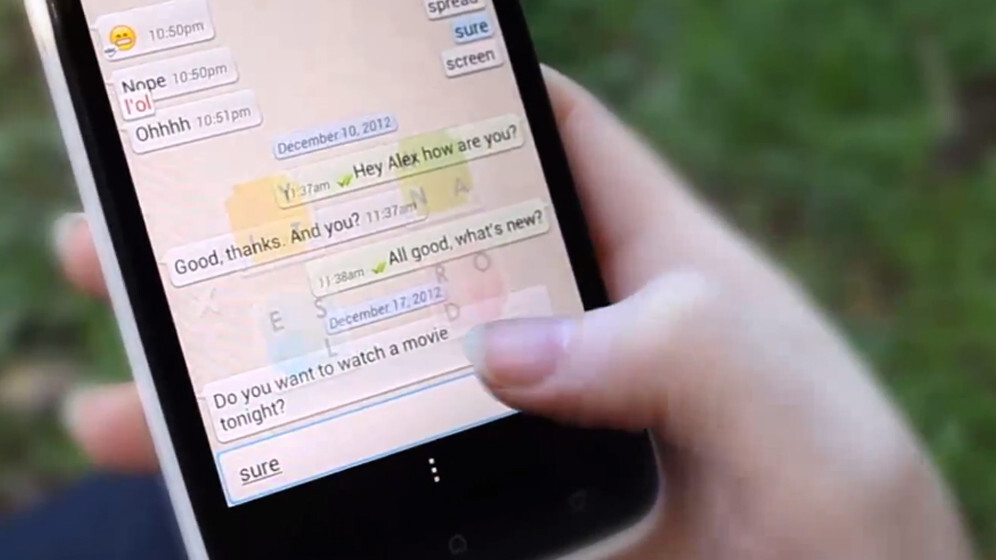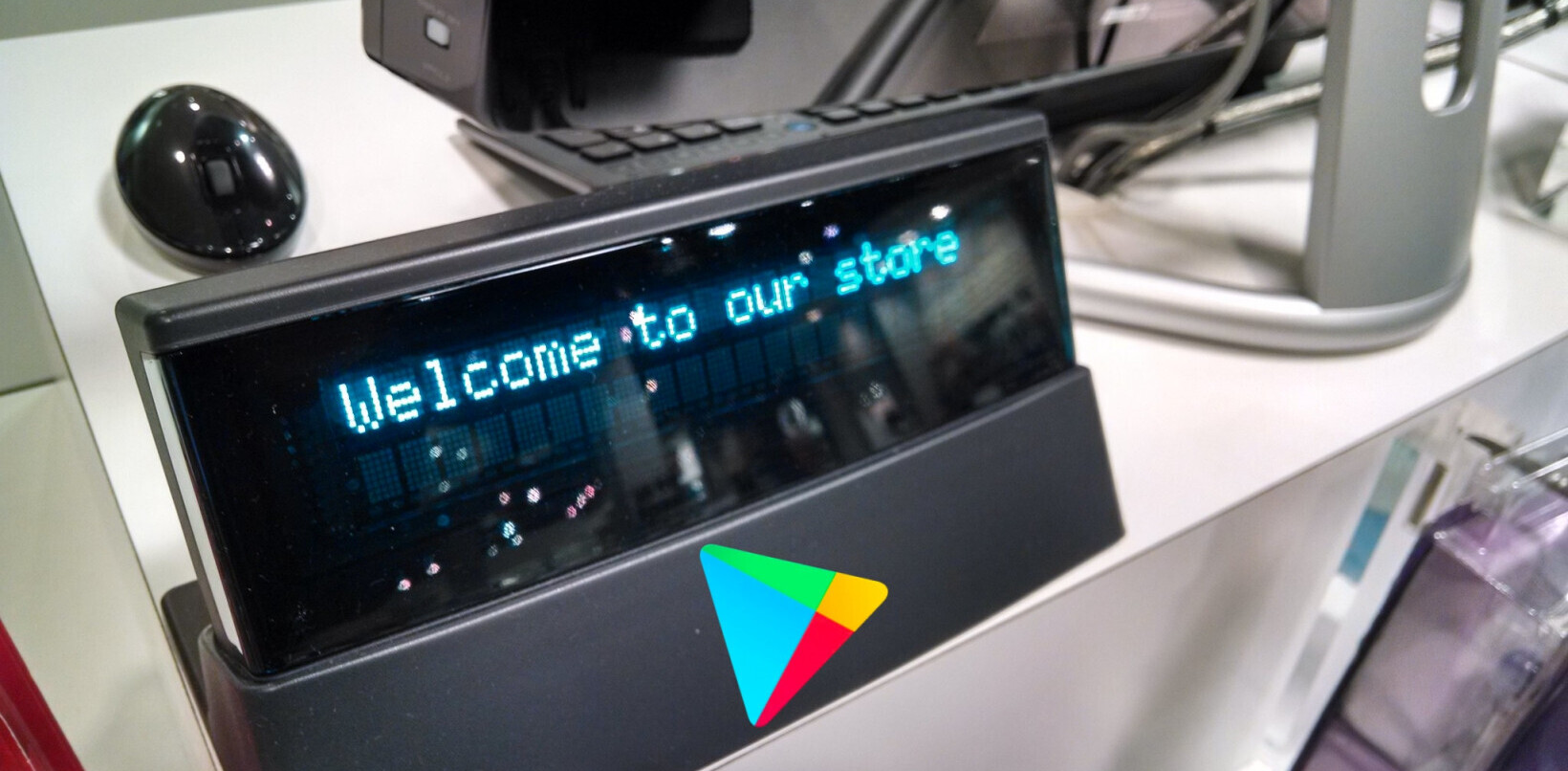
SnapKeys SI, a new typing interface that replaces the conventional keyboard on smartphones and tablets, has launched in beta for Android devices today.
The app uses four translucent colored keys that are overlayed on the screen whenever you need to type. These are then split into four tiles, of which one is a vowel and two are some of the most common letters that you use on a daily basis. To insert any of these characters, you simply hit anywhere on the coloured key – it doesn’t even need to be on the exact corresponding symbol.
When you need a letter which isn’t instantly visible, SnapKeys SI asks that you just tap inbetween the four colored keys. The app then tries to predict what word or phrase you’re creating, picking out the appropriate characters automatically.
The spacebar, meanwhile, is on the right-hand side, between the two colored keys and the edge of the screen, while the backspace or delete function sits on the far left.

Just like with existing predictive keyboard apps, the suggested word that you’re creating will appear just above the four tiles, allowing you to confirm or dismiss it before it’s placed in the text box. Swiping right anywhere on the screen will reveal new word suggestions, while tapping in the opposite direction will reveal previous ones.
The typing process is like nothing we’ve ever seen before, but that’s clearly an advantage compared with other third-party keyboard apps on the market. Smartphones and tablets are different from a PC or laptop and it’s about time that we started treating them as such. Rather than simply mimicking the input methods we’ve all grown accustomed to, SnapKeys has gone back to the drawing board to create something better.
Benjamin Ghassabian, CEO and founder of SnapKeys said:
“SnapKeys Si brings a long overdue upgrade to the mobile device market, where the screens of mobile devices have been limited to a QWERTY keyboard and a small text box. Despite innovations in smartphone and tablet technology, mobile devices today are still reliant on QWERTY-based keyboard designs, which were originally intended for typewriters and computers as a separate peripheral from the screen. The screen space of small mobile devices is precious and cannot be occupied by many keys.”
The idea is that with less characters and keys on the screen, users should be able to see and interact with content much more easily. This could include looking at a photograph in Instagram while writing a comment, or typing back while reading a conversation log on Skype.
The private beta is available today, although a public launch including other mobile devices is expected in January.
Image Credit: SnapKeys
Get the TNW newsletter
Get the most important tech news in your inbox each week.




